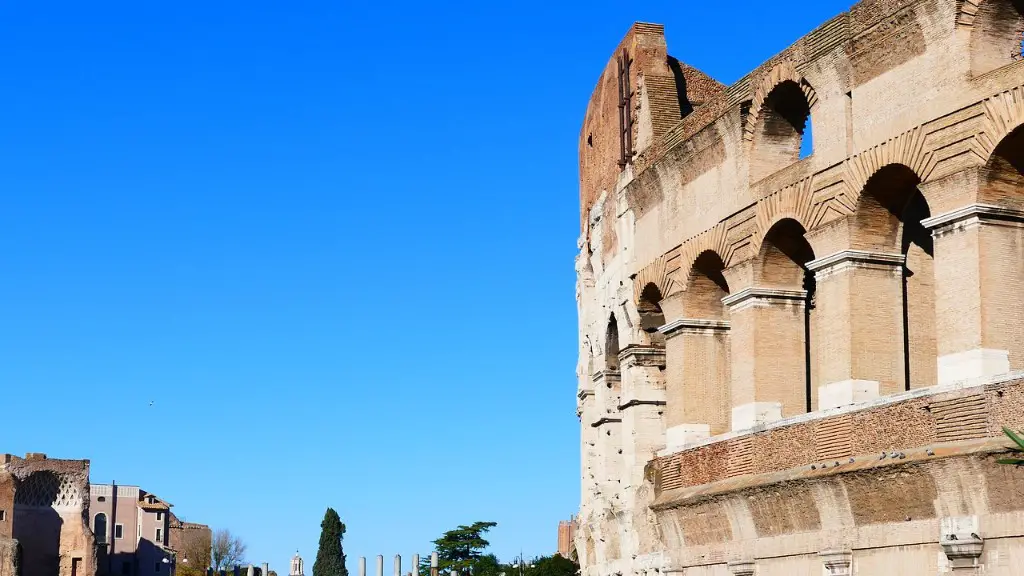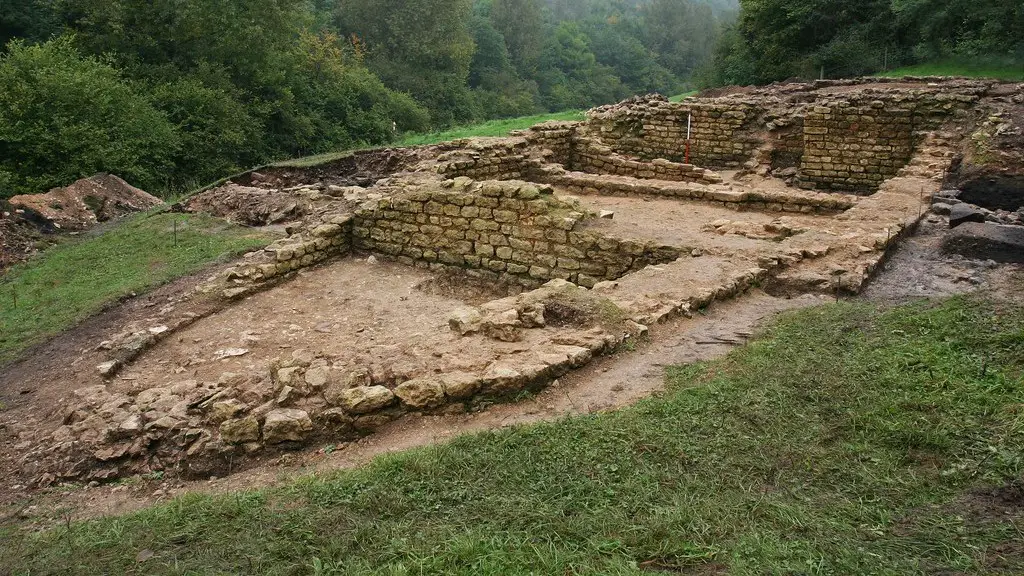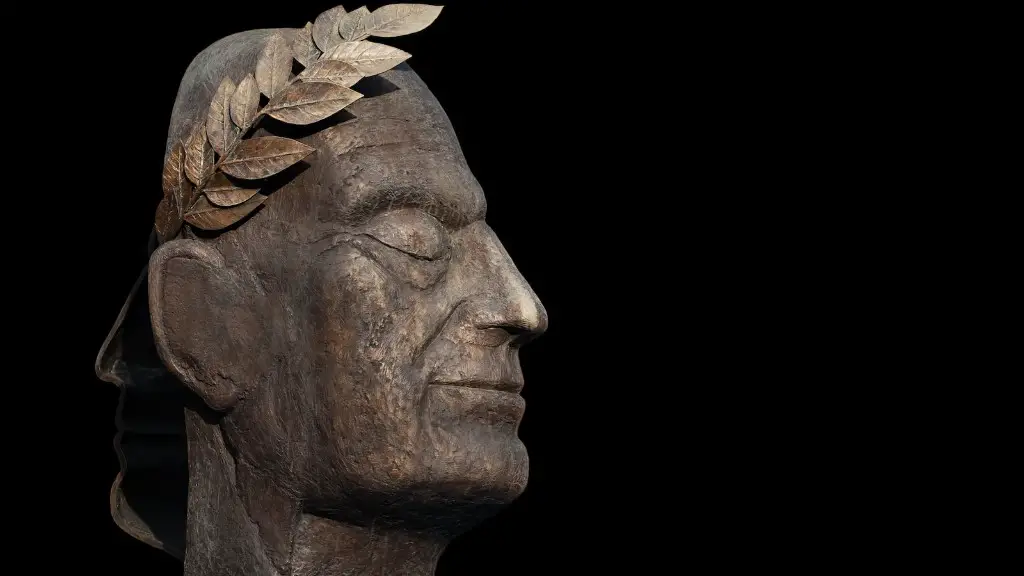Definition of a Tribute in Ancient Rome
Ancient Rome was one of the most powerful empires in the world. As such, it often demanded tribute from conquered nations. Tribute was a payment of goods or services made by a nation to Roman authorities, in order to avoid conflict and maintain stability.
The tributes of Rome were used to keep the empire’s citizens loyal, provide resources for the military, and to fund various state projects. In the early years of the empire, tributes were collected from individuals, but by the end of the second century BC they were generally collected from provinces.
Kinds of Tribute Collected by the Roman Empire
The Romans collected a variety of kinds of tributes. They collected food and other goods, such as pottery, wool, cattle, and other livestock. They also collected money, silver, and gold. They also collected slaves, which were captured or bought in other countries, and used for labor.
Tribute was also used to construct public works and monuments. The Romans had a very advanced engineering and construction industry, and many of the structures they built still stand today. The Colosseum, for example, was built with tributes from Spain and Gaul.
The Nature of Tribute Payments
The nature of the tribute payments varied from region to region, but in general the tributes were intended to be overwhelming and disproportionate to the amount of Rome’s perceived benefit from the conquered region.
The size of tributes demanded by the Romans largely depended on the power of the defeated people, and ranged from a simple statement of subservience to entire populations being enslaved in order to provide labor and goods. Tributes could also consist of payment in kind or currency, combined with military service and political submission.
The Impact of Tribute Payments
Tribute payments were extremely psychologically damaging, as they often made conquered peoples feel subjugated and powerless. This feeling could linger long after the payment had been made, and could cause resentment towards Roman rule.
The practice of collecting tribute also had a negative long-term economic impact on the Roman Empire. Many provinces were crippled by the demands imposed by Rome, and were slow to recover, if they ever did.
The Effectivity of Imperial Rome’s Tribute Collecting
One of the questions historians often ask is whether or not the Roman Empire was an effective politico-economic structure, and one way to investigate this question is to consider the effectiveness of its tribute collecting.
Historians debate whether or not imperial Rome was an effective tribute collector. While some argue that the tributes kept conquered populations in line and provided vast resources to the Roman state, others argue that the tributes imposed too much of a burden on conquered peoples, leading to unrest and instability in conquered regions.
How Tribute Payments Aided Rome’s Expansion
Despite the potentially negative effects of the tributes, they did contribute to the expansion of the Roman Empire by providing resources for Rome to expand its borders. The ease with which the empire was able to collect tribute from subjugated peoples enabled it to expand more quickly than it otherwise would have been able to, as it had access to resources from conquered territories.
The tributes also enabled the Romans to enlarge and maintain their military forces. Rome employed a large standing army and was able to finance it through the tributes collected from conquered peoples, giving it the manpower and resources to conquer more lands.
The Role of the Tribute System in Maintaining the Roman Empire
The tribute system was also key in maintaining the Roman Empire, as it enabled Rome to keep its citizens loyal and to provide resources for its public projects. By keeping the tribute payments high, the Roman authorities were able to ensure compliance and loyalty among their citizens.
The tribute system also enabled the Roman authorities to obtain resources they needed to build and maintain public works, such as roads, bridges, aqueducts, and monuments, providing the citizens with a sense of civic pride.
The Decline of the Roman Empire and the End of the Tribute System
The Roman Empire eventually declined, but the tribute system remained in place until roughly the fifth century AD, even after the fall of Rome itself. The end of the tribute system was likely due to the heavy burden it had imposed on provinces, leading to economic decline and unrest in many parts of the empire.
This then eventually led to the end of the Roman Empire and the start of the Middle Ages. It was a period of great transition, and with the end of the tribute system, a new era of warfare and politics began.
The Effects of the Tribute System on Other Cultures
The tribute system of ancient Rome had a huge impact on the cultures of the lands it conquered. The tributes imposed upon the conquered peoples were often extremely oppressive, and this often led to resentment, rebellion, and in some cases, the subjugation of entire cultures and populations.
The imposition of tribute payments on conquered cultures can also be seen as a manifestation of the power, but also of the hubris, of imperial Rome. It was a system that showed the strength of the empire, but also its short-sightedness.
Modern Views of the Tribute System of Imperial Rome
Modern views of the Roman Empire’s tribute system are complex and often divided. Ethically, many condemn the oppressive and exploitative nature of the tributes, but at the same time, the effectiveness of the system in keeping the empire stable and allowing for its expansion is also recognized.
It is clear that, whether viewed favorably or unfavorably, the tribute system of imperial Rome played a key role in the rise and fall of the Roman Empire, and its legacy still reverberates in the modern world.


